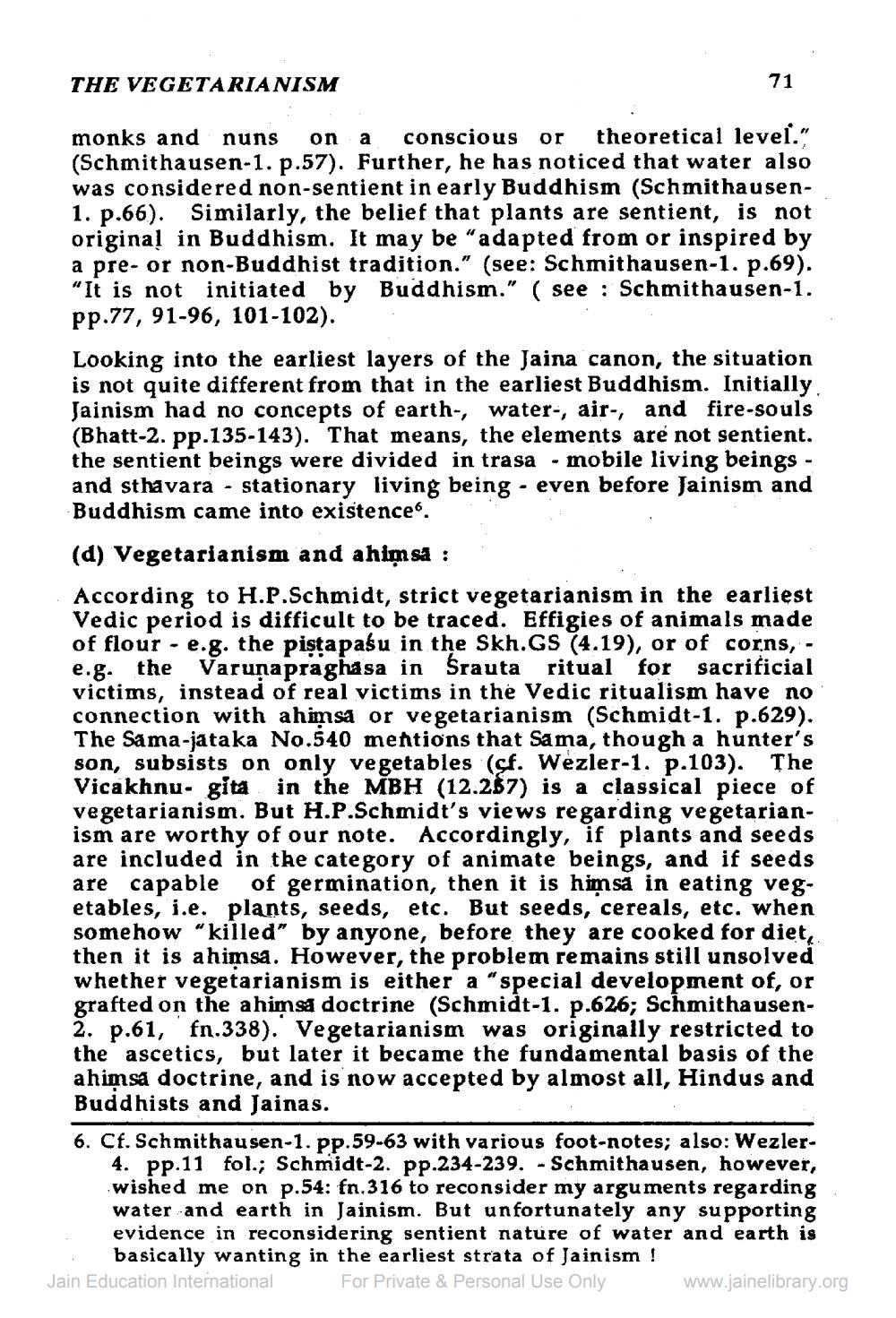________________
THE VEGETARIANISM
71
monks and nuns on a conscious or theoretical level." (Schmithausen-1. p.57). Further, he has noticed that water also was considered non-sentient in early Buddhism (Schmithausen1. p.66). Similarly, the belief that plants are sentient, is not original in Buddhism. It may be "adapted from or inspired by a pre- or non-Buddhist tradition." (see: Schmithausen-1. p.69). "It is not initiated by Buddhism." (see: Schmithausen-1. pp.77, 91-96, 101-102).
-
Looking into the earliest layers of the Jaina canon, the situation is not quite different from that in the earliest Buddhism. Initially Jainism had no concepts of earth-, water-, air-, and fire-souls (Bhatt-2. pp.135-143). That means, the elements are not sentient. the sentient beings were divided in trasa mobile living beings - and sthavara - stationary living being even before Jainism and Buddhism came into existence".
(d) Vegetarianism and ahimsa :
According to H.P.Schmidt, strict vegetarianism in the earliest Vedic period is difficult to be traced. Effigies of animals made of floure.g. the pistapaśu in the Skh.GS (4.19), or of corns, - e.g. the Varunapraghasa in Srauta ritual for sacrificial victims, instead of real victims in the Vedic ritualism have no connection with ahimsa or vegetarianism (Schmidt-1. p.629). The Sama-jataka No.540 mentions that Sama, though a hunter's son, subsists on only vegetables (cf. Wezler-1. p.103). The Vicakhnu- gita in the MBH (12.257) is a classical piece of vegetarianism. But H.P.Schmidt's views regarding vegetarianism are worthy of our note. Accordingly, if plants and seeds are included in the category of animate beings, and if seeds are capable of germination, then it is himsa in eating vegetables, i.e. plants, seeds, etc. But seeds, cereals, etc. when somehow "killed" by anyone, before they are cooked for diet, then it is ahimsa. However, the problem remains still unsolved whether vegetarianism is either a "special development of, or grafted on the ahimsa doctrine (Schmidt-1. p.626; Schmithausen2. p.61, fn.338). Vegetarianism was originally restricted to the ascetics, but later it became the fundamental basis of the ahimsa doctrine, and is now accepted by almost all, Hindus and Buddhists and Jainas.
6. Cf. Schmithausen-1. pp.59-63 with various foot-notes; also: Wezler4. pp.11 fol.; Schmidt-2. pp.234-239. - Schmithausen, however, wished me on p.54: fn.316 to reconsider my arguments regarding water and earth in Jainism. But unfortunately any supporting evidence in reconsidering sentient nature of water and earth is basically wanting in the earliest strata of Jainism ! Jain Education International
For Private & Personal Use Only
www.jainelibrary.org




